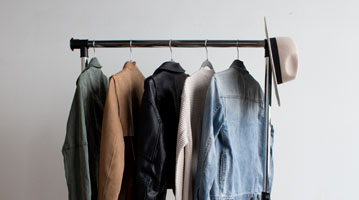- SEGMENT: Fashion & Apparel
- PRODUCT: RichRelevance Find™ and Recommend™
- CHALLENGE: Enhance user experience and increase overall online revenue; Leverage AI-driven Advanced Merchandising, eliminate the need for manual curation by a fashion consultant.
- RESULTS: Lojas Pompeia implemented Find™ and Recommend™ from RichRelevance Experience Personalization platform to create individual experiences throughout the site
+28.3% Average Ticket Size
+32.4% Items Per Order
+1.9% Revenue uplift over manual merchandising
+5.8% CTR over manual merchandising
“Our team was really surprised when we saw the results from A/B testing, which clearly proved that the Xen AI from RichRelevance Experience Personalization Platform is able to deliver much better results than our previous manual merchandising; and the technology to interact with every consumer at an individual level, considering the context at the moment and their preferences, in a very transparent and open way, not to mention the flexibility and extensibility of its 300+ strategy algorithms.”
Denis Voloski
Operations Manager at Lojas Pompeia
Founded in 1953, Pompeia is one of the largest fashion brands in Brazil and, together with Gang, is part of the Lins Ferrão Group, and is based in Camaquã, Rio Grande do Sul. With over 77 physical stores,they offer a wide mix of products — womens, mens, kidswear, footwear, accessories and housewares. Pompeia has leveraged e-commerce as a way to expand their services throughout Brazil.
Challenge
Lojas Pompeia was looking to improve their merchandising strategies. They had a team of fashion consultants that were responsible for curating and manually choosing products they would merchandise on their website. While they knew that a personalization platform could deliver a better performance with less resources, but they needed to justify this investment.
Solution
RichRelevance in partnership with Driven.cx came up with a much more effective way to sell products online with cutting-edge AI technology. Using the Experience Personalization Platform, Pompeia has begun to automatically recommend products, decided by Xen AI™, which offers over 300 strategies for detecting and responding to digital signals in real-time using a full spectrum of algorithms and multi-contextual AI to deliver massive personalization at scale, in an individual level.
Results
To prove the value of the technology, a split test was performed with users divided into two groups, 50% of users receiving manual recommendations and 50% viewing RR recommended products. As a result, RichRelevance performed better and had a 2% increase in RPV, 1.9% increase in revenue and 5.8% in CTR with a confidence level of 100%. This result was just a sample of the platform’s performance, as consumers interacting with RichRelevance personalization experience a 28.3% higher average ticket size, and +32.4% increase in revenue per order.
Lojas Pompeia uses FIND™ and RECOMMEND™, to provide to their users a fully personalized experience both in search and product recommendations. In addition, consumers have a more individualized brand experience, and the Pompeia internal team can now concentrate on strategies to grow their revenues while Richrelevance’s artificial intelligence continues to drive results and improve their business performance.
Conclusion
Lojas Pompeia team knew intuitively that AI-driven merchandising will outperform manual selection, but had to prove to themselves via a split test with actual data that their hypothesis was indeed true.
With RichRelevance, they can now select, test and showcase new merchandise, with the flexibility to use Xen AI and integrate their team’s knowledge by creating new and/or enriching existing rules in the RichRelevance Experience Personalization Platform.
DOWNLOADNée en 1977, Gamm’vert est une filiale d’InVivo, premier groupe coopératif agricole français comptant 216 coopératives agricoles sociétaires. Aujourd’hui, Gamm’vert est le N°1 de la jardinerie en France grâce à son réseau de plus de 1000 magasins de jardinerie et d’animalerie. Plus de 15 000 références regroupant 12 000 plantes et fleurs ainsi que 4 000 produits de jardin, sont proposées sur son site d’e-commerce gammvert.fr.
Avec cette multitude de produits disponibles à la vente en ligne, Gamm’vert identifie le besoin de proposer et de mettre en avant, de manière intelligente et pertinente, les références les plus adaptées aux requêtes et au parcours d’achat des visiteurs du site. L’objectif poursuivi est d’augmenter son taux de conversion et son chiffre d’affaires grâce à un accès guidé et accéléré aux articles ciblés par les acheteurs. Floriane Flèche, Chef de projet web marketing, a pour mission d’optimiser les recommandations produits, levier essentiel de l’augmentation du taux de conversion et du panier moyen.
Lire l’histoire complète
LIRE LA SUITE
Homebase sought to optimize its website experience for customers—taking stock updates, trends or personalization into account—while gaining visibility on impact for any implemented initiatives. They also sought to change the manual process for updating related items on its product pages.
DOWNLOADClarisonic wanted to maximize revenue per session by optimizing home page content tiles for different customer segments.
DOWNLOAD








